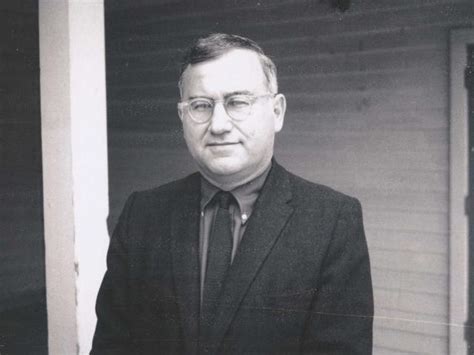A Quote by Mark Twain
Each man is afraid of his neighbor's disapproval - a thing which, to the general run of the human race, is more dreaded than wolves and death.
Related Quotes
Human life is not some sort of race or game in which each person should start from an identical mark. It is an attempt by each man to be as happy as possible. And each person could not begin from the same point, for the world has not just come into being; it is diverse and infinitely varied in its parts. The mere fact that one individual is necessarily born in a different place from someone else immediately insures that his inherited opportunity cannot be the same as his neighbor's.
Willful sterility is, from the standpoint of the nation, from the standpoint of the human race, the one sin for which the penalty is national death, race death; a sin for which there is no atonement. No man, no woman, can shirk the primary duties of life, whether for love of ease and pleasure, or for any other cause, and retain his or her self-respect.
We're just afraid, period. Our fear is free-floating. We're afraid this isn't the right relationship or we're afraid it is. We're afraid they won't like us or we're afraid they will. We're afraid of failure or we're afraid of success. We're afraid of dying young or we're afraid of growing old. We're more afraid of life than we are of death.
I think it's extremely valuable for us to be able to have a conversation in more than one dialect, speaking to more than one demographic here, finding our common ground, and having a very frank discussion about race, for one thing, which is where he is most hard-hitting, race, and the issues of human rights.
Human stories are practically always about one thing, really, aren't they? Death. The inevitability of death. . . . . . (quoting an obituary) 'There is no such thing as a natural death. Nothing that ever happens to man is natural, since his presence calls the whole world into question. All men must die, but for every man his death is an accident, and even if he knows it he would sense to it an unjustifiable violation.' Well, you may agree with the words or not, but those are the key spring of The Lord Of The Rings
Everybody is afraid of death for the simple reason that we have not tasted of life yet. The man who knows what life is, is never afraid of death; he welcomes death. Whenever death comes he hugs death, he embraces death, he welcomes death, he receives death as a guest. To the man who has not known what life is, death is an enemy; and to the man who knows what life is, death is the ultimate crescendo of life.
Johnson is wise, Boswell foolish; Johnson warns and abstains, Boswell plunges; Johnson is rather a great man writing than a greatwriter, Boswell is a great writer and an ordinary man; and they are two of a kind, abysmal melancholics and compulsive socializers, afraid of solitude and afraid of death and dissolution, victims of themselves, meant for each other, needing each other, needing evidence and arguments (Boswell is a lawyer, Johnson magisterially dictates to him some of his briefs), making beautiful models of rational discourse out of the useful substance of all they know.




































